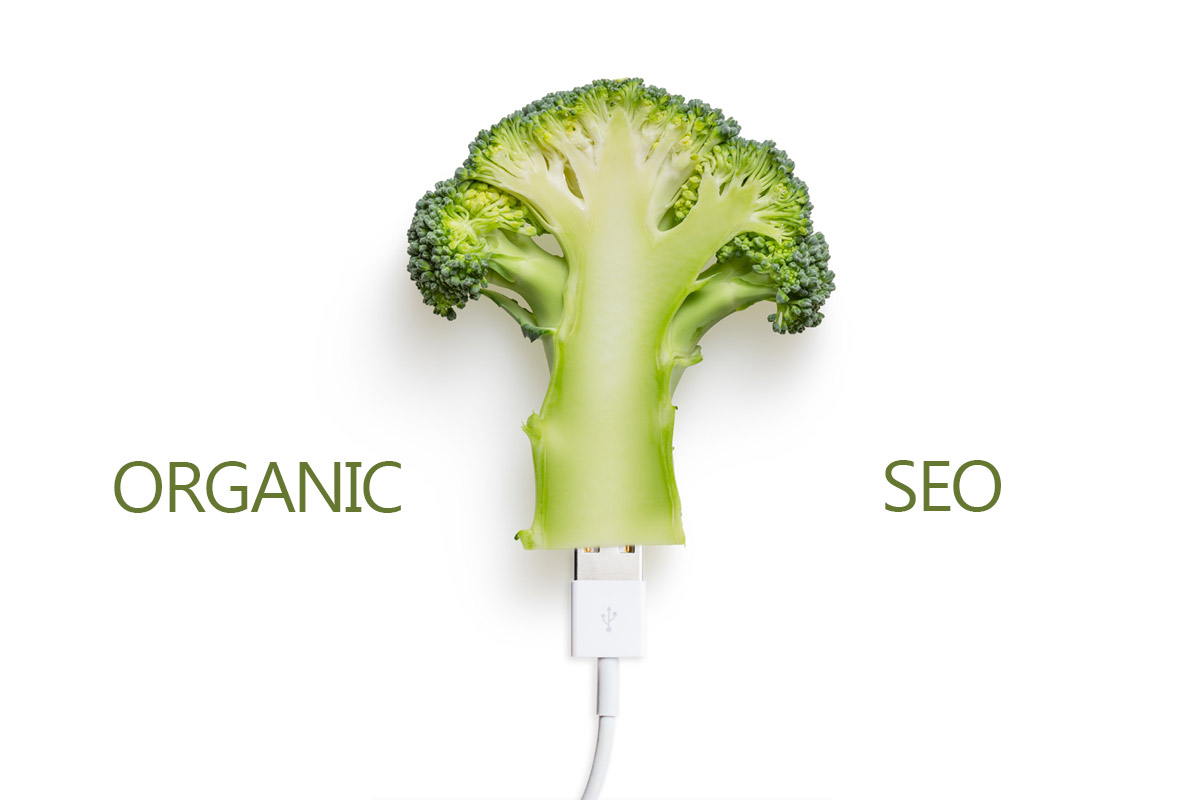Organic SEO
What’s The Point Of Organic SEO?
The point of organic SEO (search engine optimisation) is to improve the visibility and ranking of a website in search engine results pages (SERPs) without relying on paid advertising. The ultimate goal of organic SEO is to attract more relevant website traffic and increase the likelihood of converting those visitors into customers or users.
Here’s a snapshot of why organic SEO could help your business grow online:
- Keep Costs Down – Organic SEO is a cost-effective way to attract more website visitors than paid advertising. While paid advertising can be effective in the short term, organic SEO can provide long-term benefits with sustainable results.
- Build Credibility, Trust & Authority – Websites that rank highly in organic search results are often perceived as more credible and trustworthy by users. This is because users trust search engines to deliver the most relevant and trustworthy results based on their search queries.
- Increased Organic Traffic – Higher rankings in organic search results can lead to an increase in traffic to a website. The more traffic a website receives, the more opportunities there are for converting those visitors into customers or users.
- Develop Sustainable Result Patterns – While paid advertising can provide immediate results, organic SEO can provide sustainable results over time. By continuously optimising a website for search engines, it’s possible to maintain or improve rankings and traffic without constantly investing in paid advertising.
Organic SEO is essential for any business or website looking to increase its online visibility and attract more relevant traffic.
How Do I implement Organic SEO On My Website?
Many factors influence organic SEO, and it’s why it can seem complicated or hard work. However, here are some tips that can help improve your website’s visibility and ranking on search engine results pages:
- Use keyword research tools to identify the keywords and phrases your target audience uses to search for products, services, or information related to your business. Incorporate these keywords strategically in your website’s content, titles, headings, and meta tags.
- Ensure that your website is well-structured, easy to navigate, and has high-quality content that is relevant and engaging to your target audience. Use descriptive titles and headings, alt tags for images, and meta descriptions to help search engines understand the content and purpose of each page.
- Backlinks are links from other websites that point to your website. They are essential in determining your website’s authority and relevance in search engine rankings. Focus on building quality backlinks from high-authority websites relevant to your business.
- Search engines value websites that load quickly and are mobile-friendly. Optimise your website’s speed by compressing images, caching, and minimising HTTP requests. Also, ensure that your website is responsive and easily accessible on mobile devices.
- Use analytics tools to monitor your website’s traffic, engagement, and conversion rates. Use this data to identify improvement areas and optimise your SEO strategy over time.
- Organic SEO takes time and effort to yield results. Be patient and persistent in your efforts, and focus on continuously improving your website’s structure, content, and optimisation strategies.
By following these tips, you can improve your website’s visibility and ranking in search engine results pages, attract more relevant traffic, and ultimately drive more conversions and revenue for your business.
What Is Keyword Research?
Keyword research is identifying and analysing the specific words and phrases people use to search for products, services, or information online. It’s an essential component of any effective SEO strategy, as it helps ensure that your website is optimised for the most relevant keywords to your business and target audience. Through keyword research, you can identify which search terms are most popular, how competitive they are, and how they relate to your business. This information can be used to optimise your website’s content, titles, headings, and meta tags, as well as to develop a content strategy that aligns with the search intent of your target audience. More importantly, keyword research is a critical step in building a successful SEO strategy that helps to drive relevant traffic to your website and increase your visibility and rankings in search engine results pages.
What Is a Well-Structured Website?
A well-structured website is designed to be user-friendly and easy to navigate, with a clear hierarchy of information and a logical flow of content. For example, suppose you were building a new website. In that case, it should have a clear and concise homepage that summarises the website’s purpose and clear and descriptive menu items that make it easy for users to find the information they are looking for. The website should also have a consistent layout and design, easy-to-read fonts, appropriate use of images and videos, and a visually appealing colour scheme and be on-brand. It’s also a good idea to consider a clear and logical page structure, with each page focused on a specific topic or purpose and a clear call to action that encourages users to engage with the website. Finally, a well-structured website helps to improve user experience, reduces bounce rates, and can improve search engine rankings by making it easier for search engines to crawl and index your site’s content.
What Do We Mean By Backlinks?
Backlinks, also known as inbound links, link from one website to another. Backlinks are important in search engine optimisation (SEO) because they are a vital factor in determining the authority and relevance of a website. Search engines consider backlinks as votes of confidence, indicating that other websites consider your content valuable and worth linking to. The more high-quality and relevant backlinks a website has, the higher its perceived authority and the more likely it is to rank well in search engine results pages (SERPs). Backlinks can be generated organically by producing high-quality and valuable content that other websites naturally want to link to or through deliberate link-building efforts, such as outreach and collaboration with other websites in your industry. Overall, backlinks are a critical component of any effective SEO strategy, as they help to establish your website’s authority and relevance in the eyes of search engines and can ultimately drive more traffic and leads to your website.

What’s The Best Way To Prioritise Organic SEO?
Prioritising organic SEO requires a strategic approach that considers your business goals, your target audience, and the competitive landscape in your industry. Here are some steps to help you prioritise your organic SEO efforts:
- Set goals: Start by defining your business goals and objectives, such as increasing website traffic, generating leads, or improving conversions. These goals will help you to focus your SEO efforts and measure the success of your strategy.
- Identify your target audience: Determine who your target audience is and what they are searching for online. Use keyword research to identify the search terms and phrases your audience uses to find the products or services you offer.
- Conduct a website audit: Conduct a comprehensive website audit to identify areas for structure, content, and optimisation improvement. Use website analytics to identify pages with high bounce rates or low engagement and prioritise improvements to these pages.
- Focus on on-page optimisation: Optimize your website’s structure, content, and meta tags to align with the search intent of your target audience. Use keyword-rich titles, headings, and meta descriptions, and optimise your images and videos with alt tags and descriptions.
- Build quality backlinks: Focus on building high-quality backlinks from authoritative websites in your industry. Use outreach and collaboration strategies to build relationships with other websites and attract relevant backlinks.
- Monitor and measure performance: Use website analytics to monitor your SEO performance, track changes in rankings, and measure the success of your strategy. Use this data to identify areas for improvement and optimise your strategy over time.
By prioritising these steps, you can develop a comprehensive and effective organic SEO strategy that helps to drive relevant traffic, improve visibility and ranking in search engine results pages, and ultimately achieve your business goals.

Are There Any Secret Tips For Organic SEO?
While there are no “secret” tips for organic SEO, there are some less well-known tactics that can help to boost your rankings and improve your SEO performance. Here are a few tips:
- Long-tail keywords are longer, more specific search phrases that can be easier to rank for than shorter, more generic keywords. Focus on identifying and targeting long-tail keywords that are relevant to your business and have lower competition.
- Featured snippets are the summary answer boxes that appear at the top of some search engine results pages. To optimise for featured snippets, structure your content clearly and concisely, and include headers, lists, and bullet points to make it easy for search engines to understand the content and display it in a featured snippet.
- Page load speed is a critical factor in user experience and SEO performance. Use tools like Google PageSpeed Insights to identify areas for improvement, such as compressing images and optimising code, to improve your page load speed and enhance your SEO performance.
- Social media can be a powerful tool for building your brand and driving traffic to your website. Share your content on social media platforms, engage with your followers, and build relationships with other influencers in your industry to attract more traffic and improve your SEO performance.
- Schema markup is a code that helps search engines understand the content and structure of your website. Use schema markup to enhance your visibility in search engine results in pages and to provide more context and information to search engines and users.
- Devise a content market plan that uses cluster articles to help build authority for your domain.
Overall, the key to effective organic SEO is to focus on providing high-quality, valuable content that aligns with the search intent of your target audience and to use a combination of on-page optimisation, backlink building, and other tactics to improve your SEO planning over time.
Hi, I’m Dave. I’ve been building websites and helping businesses grow online for over 20 years. If you think we can work together, get in touch today and say hello.


Pingback: How To Define An SEO Keyword Strategy For Content Marketing